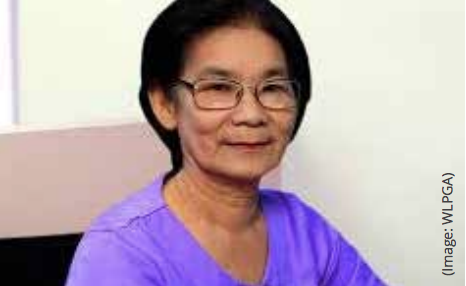Gender Equality
Gender equality is important for the energy sector to maximise its contribution to economic growth and broader development goals. Access to clean cooking energy is an especially gendered issue, because women are primarily responsible for cooking in most cultures8 and need the benefits in terms of ease of use, time savings and improved health outcomes that using LPG as their cooking fuel can bring.
Delivering cooking energy access using LPG is a key contributor to meeting SDG 5 on gender equality. It provides women with opportunities through saving time spent on collecting fuelwood and cooking, allowing them more time to pursue other activities such as education, leisure and livelihood opportunities.
Women are active across the LPG supply chain as policy makers and as entrepreneurs. However, women remain underrepresented within the industry in some countries, and there are now a range of initiatives to address this. The World LPG Association launched the Women in LPG (WINLPG) global network several years
ago as a way to support women’s engagement across the industry, recognising that there is still room to enhance gender balance within the LPG sector. It is formulating and recommending actions through its national chapters in Africa, the Americas, Asia and Europe and at the global level. In 2018 it launched the LPG Woman of the Year Award as a way to champion the contribution of women leaders within the LPG industry.
“Women across the world are significant contributors to the economic development of many nations. Today, women are making unparalleled achievements in traditionally maledominated industries because we are naturally equipped with a depth of intuition, resilience and creativity that makes for ‘business unusual.”
Audrey Joe-Ezigbo, Co-Founder & Executive Director, Falcon Corporation Limited, Nigeria

LPG, AN EMPOWERING FUEL FOR GENDER EQUALITY IN THE WORKFORCE
Because LPG is a modern energy source, its development has called for the employment of a modern, gender inclusive workforce.
Daw Kyaw Kyaw Win, Head of Business Unit at Parami Energy in Yangon, Myanmar, has had a lifelong career in the Oil and Gas sector starting with the Myanmar Petrochemical Enterprise (MPE). After her retirement from the MPE, she started her current role at Parami, the first company in Myanmar to obtain a license from MPE under the Ministry of Electricity and Energy for importing LPG by sea freight. She stated: “With my management contribution in Parami Energy, I want to motivate more women to participate and thereby boost the LPG Network, both here in Myanmar and in other countries.” On the relationship between gender equality and energy, she strongly advocates improved gender diversity – particularly in Myanmar – and believes that all employment levels across the LPG supply chain and more generally in the energy sector will benefit from greater gender equality.
The LPG industry has provided many opportunities for women to participate in the workforce, across developed and developing countries. Promoting a more gender equal workforce not only allows the sector to benefit from a more diverse and resourceful pool of talent, but also empowers women economically and provides more opportunities for leadership.
Growth of the LPG sector has also called for better investors and business developers. Enter Audrey Joe-Ezigbo, the Co-Founder and Executive Director of Commercial Operations of Falcon Corporations Limited, Nigeria. She is also the Vice President of the Nigerian Gas Association (NGA), the umbrella organisation for professionals and businesses involved in the Nigerian gas industry. She also serves as Chairperson for the NGA’s Investment Promotion Committee.
LPG has been the centerpiece of Joe-Ezigbo’s thriving career in the oil and gas industry. In a WINLPG interview, she spoke about her ambition to take LPG development in Nigeria to the next level: “I am working to quadruple my company’s size and revenues within the oil & gas industry over the next three to five years through a strong play in LPG storage terminals; natural gas distribution; upstream gas development; and gas transportation infrastructure development.” She also recognises the importance of keeping up with technological and regulatory developments in the LPG sector, and of industry networks in helping with learning and networking.
